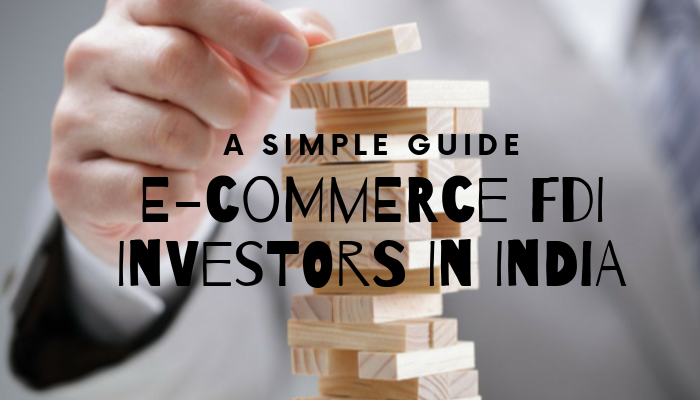With the release of Press Note 3 by the Department of Industrial Policy and Promotion, a new set of guidelines have come forward when it comes to FDI in e-commerce. According to the laws of FDI in India, the foreign investment in India is taken care of by the consolidated FDI policy and the Foreign Exchange and Management Act or FEMA of 1999. The press notes are issued by the Ministry of Commerce and Industry in India regarding the amendments made in the FDI policy in this country.
PN3 and what lies ahead
According to the previous ruling of FDI investment in the field of e-commerce, 100 percent was allowed in B2B e-commerce under the automatic route which required no approval of the government. When it comes to the tenets of PN3, it keeps the FDI policy in B2B and B2C in e-commerce similar and differentiates both the models of e-commerce as based on the model of inventory and marketplace. Furthermore, it states clearly that FDI of up to 100 percent is going to be allowed without the approval of government only for the model that is based on the marketplace. Apart from this, the press note 3 has also reworked on the definition of e-commerce and has come out with a clearer definition of the e-commerce entities.
Following the operational guidelines for B2B e-commerce
For the first time, DIPP has also come out with various guidelines for the e-commerce entities that are based on the marketplace.
Support functions
The e-commerce entities can now provide warehousing, logistics, call center, order fulfillment, collection of payment, along with various other support functions to the sellers. These supportive services are going to facilitate the e-commerce entities in revenue generation for themselves besides the commission fees that are charged to the seller. Some of the most prominent e-commerce entities provide warehousing services to the sellers. When it comes to the foreign investment in India in the segment of e-commerce, the supportive functions must restrict to providing mere support to the sellers to avoid policy violation. According to PN3, when the e-commerce entities engage in payment collection, they must ensure that the services conform to the guidelines of RBI.
Price of goods and services
The new ruling of foreign direct investment also states that the e-commerce entities canoe influence the price of the goods and services directly or indirectly. Quite naturally, the imposition of this guideline is a measure to reduce the bad pricing tactics of the e-commerce entities to attract new buyers to the respective platforms and to come at a consensus with the offline traders. As far as a genuine marketplace model is concerned, the seller control the pricing strategies of the products and services and whatever discounts apply to them comes directly from the sellers.
Sourcing the goods
When it comes to sourcing in relation to the e-commerce entities, they cannot get beyond 25% sales on their platform from any seller. This operating guideline also ensures that the e-commerce entities do not execute the B2C e-commerce disguised as a marketplace model using complex business structures. Quite naturally, the inclusion of this provision is definitely going to impact those players who get more than 25 percent sales from their group companies and the vendors. Such e-commerce entities must reform their business structure to stay in track with the ruling of PN3. However, no clarity has been given to the extent for calculating the cap on sales to know whether it is going to be calculated on the basis of the financial year.
Other things to know
The responsibility of goods delivery and satisfaction of the customers on the sale and the warranty of goods and services depends on the seller. This guideline is based on the marketplace model of the e-commerce entity instead of a facilitator.
The emergence of PN3 can definitely impact the foreign investment in Indian company in the realm of e-commerce, which until now looked nebulous due to clarifications from the Indian government. It also makes the e-commerce entities more legitimate with FDI in India that is based on the model of the marketplace. Apart from this, PN3 can impact the e-commerce companies that already have FDI or want to boost it, but not those entities that are without FDI. The PN3 comes as a good move from the government, but there is room for more improvement in various aspects of FDI in India.
Author Bio
Amy Jones is the expert legal advisor at Ahlawat & Associates-top law firms in India. She is a good passionate writer and loves to help people in all aspects of the law. You can follow her on Twitter, Linkedin.

